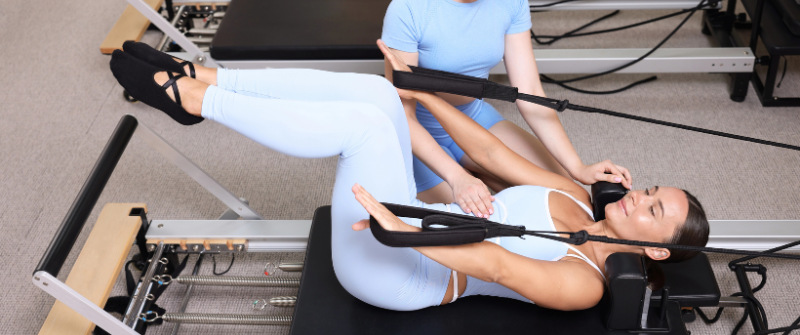
- by NEXO Team
- February 25, 2021
As a gym, fitness, or health club owner, you face more risk than other businesses because your primary operations include engaging clients in strenuous exercise every day. While your top priority is your clients' health, wellness, and fitness, you also have the responsibility of taking care of your staff and business.
There are several unique risks associated with running a fitness business, from falls in the weight room and medical accidents to broken equipment. Whether you own a CrossFit box, gym, cycling studio, martial arts studio, or yoga studio, you will need various insurance coverages to protect your business, clients, and employees.
Common Types of Gym Insurance Policies
Gym insurance combines several policies such as general liability, professional liability, property coverage, workers' compensation, and equipment insurance. Business insurance is necessary whether or not you need particular policies to fulfill contractual obligations.
Additionally, the types of policies you need and their cost depend on your fitness facility's type and size. For instance, a boutique CrossFit Box where the owner teaches every session most likely does not require workers' compensation but could opt for professional liability insurance instead. Simultaneously, a full-service gym with youth fitness lessons, a juice bar, and massage therapy will pay more insurance costs than a small gym.
Below are the most common business insurance policies in the gym and fitness industry.

1. General Liability Insurance
General liability insurance is a standard and comprehensive policy that protects your gym business if you, your staff, services, or products are found negligent or the cause of an accident or property damage.
General liability covers claims against your business, including injury, libel, slander, property damage, privacy damage, and copyright infringement. It can also protect you financially for everything, including:
- Property damage claims against your business
- Bodily injury and medical care expenses should anybody get hurt on your premises
- Medical payments resulting from client injuries while on your premises that don't warrant the need to file a lawsuit
- Damage to rented premises
- Personal and advertising injuries, including charges leveled against you for slander, libel or copyright infringement
- Legal settlements that your business must pay should you lose a case
- Legal fees, witness expenses, and other associated costs of defending your business in court or against a claim
The cover is essential if you hire independent contractors like physical therapists or personal trainers in your gym. In such cases, ensure that the contractor has general liability insurance with a limit of at least $1 million and includes incidental medical malpractice cover. They should also include you as an additional insured.
2. Liability Insurance
Premises liability is high in fitness businesses because of the high daily traffic and the type of equipment you have. The cover protects your gym business from liability should a client or visitor get injured within your premises or in your parking lot.
Fitness facilities have many possible unique liability risks. To avoid some of them, ensure that your facility has enough trainers, and well-maintained sidewalks and parking lots to prevent slips and falls.
Liability insurance will cover the resulting claims should an accident occur. Such cover includes legal fees and claims for occurrences of on-site injuries, accidents, and other health events. Thus, it's one of the best types of insurance coverages gym owners need to protect their business from potential claims
3. Professional Liability Insurance
It protects you against negligence claims against your staff who act on your behalf. It covers the advice and training given to members by trainers, dieticians, or physical therapists. If a client feels that the advice or training they received caused them harm and files a lawsuit, this cover can protect your business against the legal fees.
4. Workers' Compensation
Workers' compensation covers claims associated with employee injuries that occur while on the job and during employment. Ensure that your state's workers' compensation statute covers injury in employee-sponsored fitness centers.
Worker's compensation insurance protects employees injured while on the job and gym owners who suffer costs due to employee lawsuits. For example, if a trainer breaks their leg while working and is rushed to the hospital, the cover will pay for the medical bills, lost wages during recovery, and follow-up appointments.
5. Equipment Breakdown Insurance
Gym equipment is often expensive and prone to breakdowns and damage from daily use. Hence the need to take equipment insurance for fitness facilities to cover damage to property and equipment such as weight machines, treadmills, air conditioning, and other breaks. If you sell food products, it could cover the cost of refrigeration breakdown or loss caused by spoilage.
6. Business Owner's Policy (BOP)
A business owner's policy includes general liability and property insurance under one plan. Therefore, it's a cost-effective policy for gyms and fitness clubs.
7. Special Events Insurance
Gyms and other fitness businesses often hold special events such as weight-lifting competitions. Sometimes, general liability insurance may not cover everything that could occur during such events, hence the need for special events coverage. The cover is often temporary.

8. Business Personal Property Coverage
It protects your business' property in case of accidents. Coverage includes offices, locker rooms, a gymnasium, a pool, and other recreational facilities.
9. Product Liability Insurance
Gym owners who opt to sell products like fitness equipment, supplements, or workout clothes can get sued if they cause harm to consumers. Hence the need to take out product liability insurance to provide coverage for these risks.
Most gyms and fitness facilities have sufficient product liability coverage under a general liability policy. However, if you make the products you sell or if retail brings in a significant portion of your business revenue, then you may need to take out a standalone product liability policy.
Bottom Line
Gym owners need sufficient insurance to cover their operational risks and protect their business. Gyms face more risks every day than other businesses because of the nature of their operations and services. The right business insurance policies can protect your investment, leaving you to concentrate on serving your clients.
NEXO Fitness Solutions insures over 3,000 gym owners nationwide. We tailor policies to each client's unique needs to provide complete protection for your business. Our services are quick and straightforward, and our agents work with you to provide a customized policy for your business. We also have quick response times and excellent customer service.
or call us at to get started.
Categories
Fill out a short form to contact us with your questions or to receive a customized quote.
Recent Posts
-
 Injury Waivers Aren’t Enough: Insurance Gaps Jiu-Jitsu Owners Overlook
January 21, 2026
Injury Waivers Aren’t Enough: Insurance Gaps Jiu-Jitsu Owners Overlook
January 21, 2026 -
 How Gym Risk Management Can Lead to Lower Premiums Over Time
January 21, 2026
How Gym Risk Management Can Lead to Lower Premiums Over Time
January 21, 2026 -
 Why Combat Sports Gyms Pay More for Insurance and How to Control Costs
January 21, 2026
Why Combat Sports Gyms Pay More for Insurance and How to Control Costs
January 21, 2026 -
 Functional Fitness Injury Trends That Impact Insurance Underwriting
January 21, 2026
Functional Fitness Injury Trends That Impact Insurance Underwriting
January 21, 2026 -
 Why Pilates Studios Face Unexpected Liability Despite Being Low-Impact
January 21, 2026
Why Pilates Studios Face Unexpected Liability Despite Being Low-Impact
January 21, 2026

